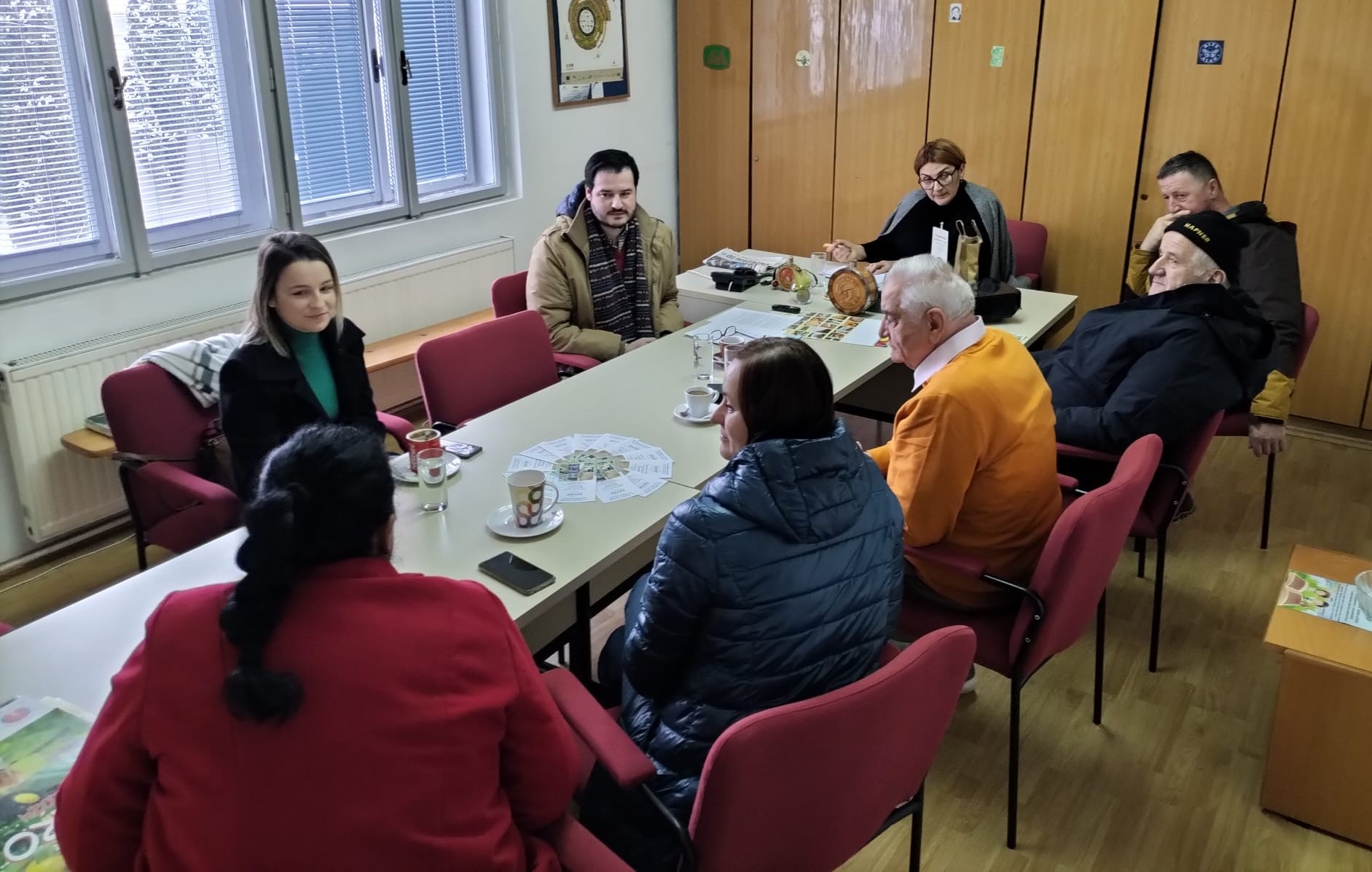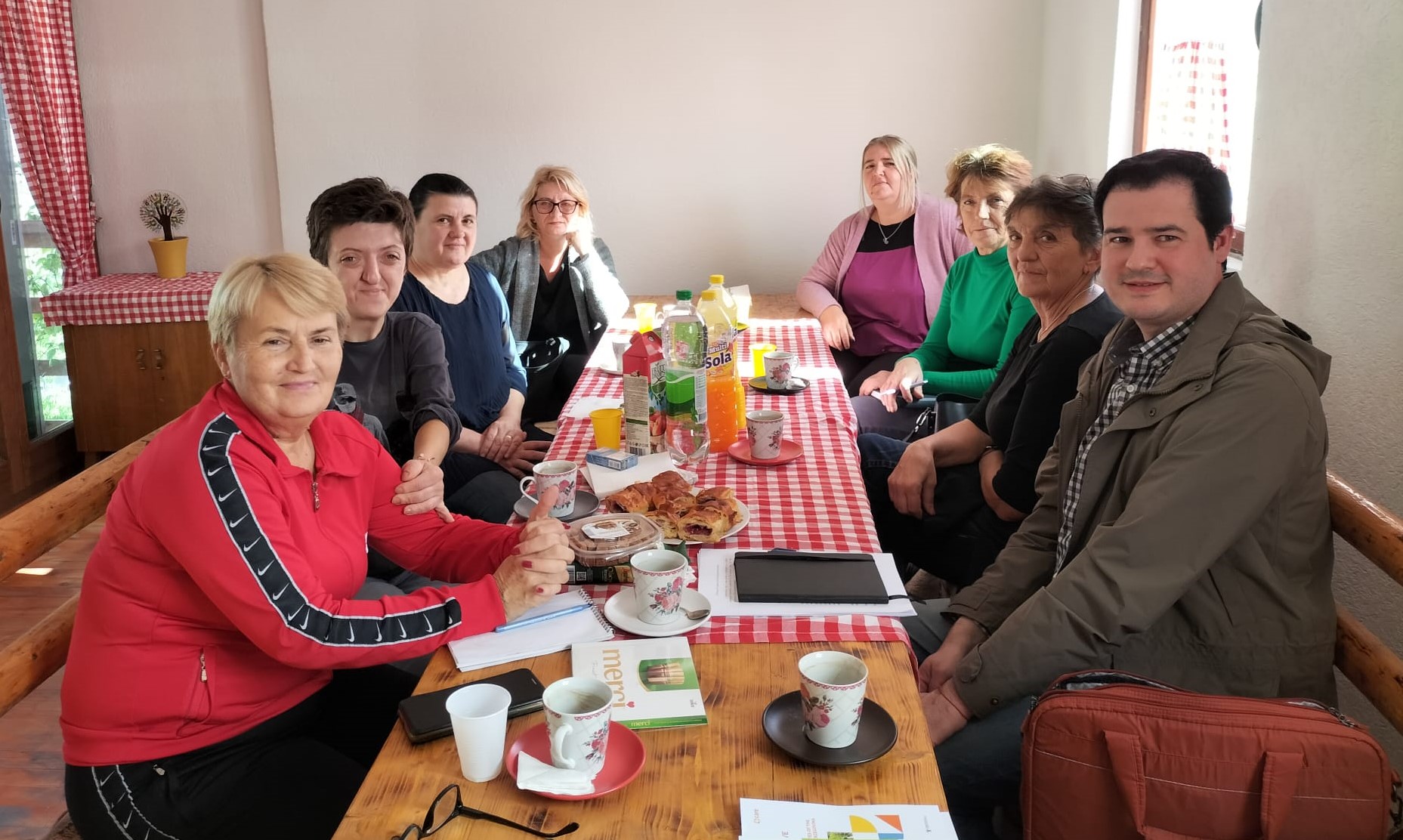Voices from the Sylff Community
Mar 12, 2024
The Role of Cooperatives in Promoting Interethnic Dialogue and Peaceful Coexistence
Given their emphasis on collective work, democratic decision-making, and dialogue in promoting members’ economic and social well-being, cooperatives encourage an openness to others, which can also enable different ethnic groups to work together toward common goals and achieve peaceful coexistence. Rui Lora (University of Coimbra, 2020-21) writes that in Bosnia and Herzegovina, cooperatives were a major factor in overcoming discrimination and fostering reconciliation.
* * *
The economic, social, and political benefits of the cooperative movement—launched with the founding of the Rochdale Society of Equitable Pioneers in 1844—have long been recognized. In recent years, such benefits have also been observed in such fields as international relations, diplomacy, and even peace studies (Macpherson and Paz 2015; Emmanuel and Macpherson 2007; Cooperatives Europe 2019). One way of identifying the nature of these contributions is to analyze the movement through the lens of what is called diatopic hermeneutics. This allows cooperativism to be perceived as an actor in international relations from the perspective of “cosmopolitanism”—which views all people as being entitled to equal respect and consideration, regardless or citizenship or other affiliations.
The concept of diatopic hermeneutics was first presented by Panikkar (1982) and later expounded by Santos (1997). It is based on the principle that one culture cannot understand another from just its own viewpoint. Rather, it is “necessary to understand the other without assuming that it has our same self-knowledge or knowledge base” (Santos 1997). Diatopic hermeneutics thus seeks to “bring into contact radically different human horizons” in order to achieve true dialogue and the interaction of cultures (Santos 1997). It can be understood as the reciprocal translation of values, knowledge, and beliefs and is needed because the commonplace rhetoric of a given culture or tradition is often incomplete, incompatible, or potentially challenging from the perspective of another tradition. There must be dialogue between diverse cultural perspectives to enable the reciprocal translation of values, knowledge, and beliefs.
An examination of traditional principles of cooperativism reveals that they have much in common with diatopic hermeneutics. In fact, the cooperative might even be regarded as a practical instrument of the concept. The principles of cooperativism, for example, emphasize the importance of collective work, democratic decision-making, and dialogue in promoting the economic and social well-being of members. Such principles are aligned with the approach of diatopic hermeneutics in implying an openness to understanding the other and valuing cultural diversity.
Expanding Scope of Cooperatives
Historically, cooperativism has been a movement that, from the beginning, sought to build alternative economic models to capitalism through its emphasis on collective ownership and democratic management, while at the same time avoiding a state-centered economic model (Namorado 1999). Since its emergence after the Industrial Revolution, cooperatives have addressed a plurality of community needs, including in times of crisis (Vieta and Lionais 2015). In addition to making economic contributions, cooperativism is usually and directly related to many aspects of the social and solidarity economy (Singer 2018).
However, over the years, and particularly more recently, the scope and performance of cooperatives have expanded to other spheres. This has prompted the need to discuss the role of cooperatives from a cosmopolitanist perspective, as the globalization of the world economy and commercial liberalism have, according to some theoretical perspectives, deepened exclusion and wealth concentration, thereby threatening democracy and peace (Rodrigues 2008). In this context, cooperatives began to assume an increasingly prominent economic and political role with the emergence of an independent civil society around the world (Laville 2009).
The globalization process has greatly modified the way people interact in society in recent years. It has made possible the compression of time and space, reducing distances and speeding up information, and the promotion of the universalization of laws. But it has also highlighted differences in sociocultural identities in response to social homogenization, causing conflict between different human groups (Ioris 2007). This makes discussions of the tools and procedures that allow different segments of society—those with different worldviews—to communicate and meet the challenges of social and political coexistence quite important. Expanding the concept of diatopic hermeneutics with the aim of contributing to this discussion, especially with respect to diversity, may help bring together human groups that are isolated or in conflict due to globalization.

The author, top left, speaking with members of a multiethnic cooperative in Bosnia and Herzegovina as part of his SRG project.
Seeing cooperatives as an international actor reveals significant local and even global contributions that can be made by the cooperative movement in allowing actions and initiatives to transcend various disparities. Santos suggests that globalization can be understood through the lenses of “globalized localisms” and “localized globalisms,” referring to global perceptions of local customs and the impact of transnational practices on local conventions, respectively (Santos 1997, 14). These dynamics, characterized by asymmetries between central and peripheral countries, underscore the potential of cooperatives to contribute to regional integration by addressing such disparities.
An Actor in International Relations
In this context, cosmopolitanism emerges as a concept that enables actors, including regions, classes, and subordinate social groups, to interact transnationally in pursuit of common interests (Santos 1997). Cooperatives, rooted in cooperation among themselves and in contributing to the community, are connected to a global network through the International Cooperative Alliance (ICA), for example. They play a crucial role in inclusive socioeconomic development and can also serve as a tool for subaltern and insurgent cosmopolitanism, addressing the aspirations of oppressed groups and fostering global solidarity.
Cooperatives can thus be understood as an actor in international relations from a cosmopolitanist perspective, advocating for common interests shared by marginalized, excluded, and subordinated groups globally. When viewed as part of cosmopolitanism, moreover, the principles and values of cooperativism acquire a practical dimension, enabling dialogue and the exchange of experiences among cooperatives and members. The organizational structure of cooperatives, both locally and regionally, as well as their international representation through bodies like the ICA, empowers marginalized groups in global governance mechanisms and contributes to addressing asymmetries in integration processes.
To avoid overly idealistic conclusions, though, it is essential to identify specific situations and contexts where this relationship between cooperatives and cosmopolitanism can be verified, even tangentially. This approach can ensure a more nuanced understanding of cooperatives’ role in fostering regional integration, such as in the Western Balkans. According to the report by Cooperatives Europe (2019), two projects in Bosnia and Herzegovina have demonstrated the capacity of cooperatives to promote interethnic dialogue and economic development of the region: the “Fruits of Peace” project of the Insieme Cooperative in the Bratunac region and the creation in Doboj of multiethnic cooperatives as a consortium of rural producers.
The main success of both projects was the establishment of a flexible and progressive process for forming cooperatives, allowing exchange between different ethnic groups to develop within the cooperatives. The increased dialogue helped to overcome discrimination and promote peacebuilding, providing opportunities to correct misunderstandings and find a path toward peaceful coexistence. By promoting collective work, both projects also enabled the revitalization of sustainable rural economies and contributed to reconciliation by overcoming long-established divisions. Major factors behind their success were that the cooperative ensured continuous training and promoted constant dialogue for both its employees and producers.
An Analytical Lens for Understanding Global Dynamics in Local Contexts
Analyzing these cases from a cosmopolitanist perspective, one can argue that cooperatives have the potential to promote interethnic dialogue and build coexistence in diverse environments. By embodying such principles as cooperation, solidarity, and democracy, cooperatives provide a space for members of different ethnic groups to come together, work toward common goals, and build understanding to achieve reconciliation. The principles of cooperativism thus also incorporate the idea of diatopic hermeneutics, especially in seeking to understand cultural and legal diversity in different geographical contexts, as highlighted in examples like those observed in Bosnia and Herzegovina.
If, on the other hand, cooperatives are conceived within the framework of globalized localisms and localized globalisms, they can become subject to a complex and unequal power dynamic, which can manifest as oppression, exploitation, and marginalization. This may occur when global influences benefit dominant centers at the expense of those on the periphery. Diatopic hermeneutics can help us understand how these global processes are reinterpreted and experienced locally, and how communities like cooperatives resist and respond to these power dynamics.
In this context, the role of diatopic hermeneutics would be to offer an analytical lens for understanding how global dynamics are interpreted and experienced in specific local contexts, especially by the cooperatives in this case. In other words, diatopic hermeneutics allows an analysis sensitive to cultural, historical, and social differences in different places, recognizing that experiences and interpretations of globalism and localism vary according to geographical and cultural context. It helps us to understand how global influences are reinterpreted and adapted locally, and how these adaptations reflect and shape power relations, resistance, and identity.
Using diatopic hermeneutics to understand cooperativism in a cosmopolitanist scenario thus enables us to capture the nuances of the relationships between globalism, localism, and subalternity, providing a more holistic and contextualized approach to analyzing issues of justice, power, and social transformation in a globalized world and supporting the argument that cooperatives can contribute to interethnic dialogue.
References
Charles, Lorraine, and Kate Denman. 2013. “Syrian and Palestinian Syrian Refugees in Lebanon: The Plight of Women and Children.” Journal of International Women’s Studies 14.5: 96-111.
Cooperatives Europe. 2019. Cooperatives and Peace: Strengthening Democracy, Participation and Trust. A Case Study Approach. Cooperatives Europe and Cooperatives Europe Development Platform.
Emmanuel, J., and MacPherson, I., eds. 2007. Co-operatives and the Pursuit of Peace. British Columbia: New Rochdale Press.
Gijselinckx, Caroline, and Matthias Bussels. 2014. “Farmers’ Cooperatives in Europe: Social and Historical Determinants of Cooperative Membership in Agriculture.” Annals of Public and Cooperative Economics 85.4: 509-530.
Ioris, Rafael Rossotto. 2007. Culturas em choque: a globalização e os desafios para a convivência multicultural. Annablume.
Larkin, Craig. 2012. Memory and Conflict in Lebanon: Remembering and Forgetting the Past. Routledge.
Laville J. L. 2009. A economia solidária: um movimento internacional. Revista Critica de Ciencias Sociais 84.
MacPherson, Ian, and Yehudah Paz. 2015. “Concern for Community: The Relevance of Co-operatives to Peace.” Joy Emmanuel, ed. Victoria: Turning Times Research and Consulting.
Madulu, Ndalahwa F. 2003. “Linking poverty levels to water resource use and conflicts in rural Tanzania.” Physics and Chemistry of the Earth, Parts A/B/C 28.20-27: 911-917.
Menashri, David. 2001. Post-Revolutionary Politics in Iran: Religion, Society, and Power. Routledge.
Namorado, Rui. 1999. Estrutura e Organização das Cooperativas. Oficina do Centro de Estudos Sociais de Coimbra 138.
McNally, D., 1993. Against the Market: Political Economy, Market Socialism and the Marxist Critique. London: Verso.
Panikkar, Raimundo. 1982. “Is the Notion of Human Rights a Western Concept?” Diogenes 30.120: 75-102.
Rodrigues, Roberto. 2008. “Cooperativismo: Democracia e Paz – surfando a segunda onda.” OCB.
Santos, Boaventura de Souza. 1997. “Uma concepção multicultural de direitos humanos.” Lua Nova 39: 105-124.
———. 2004. “Para uma sociologia das ausências e uma sociologia das emergências.” In Santos, B. de S, comp., Conhecimento Prudente para uma Vida Decente: ‘Um Discurso sobre as Ciências’ revisitado. São Paulo: Cortez, p. 777‐821.
Singer, Paul. 2018. Ensaios sobre economia solidária. Leya.
Vergalito, Esteban. 2009. “Acotaciones filosóficas a la ‘hermenéutica diatópica’ de Boaventura de Sousa Santos.” Impulso 19.48: 19-29.
Vieta, Marcelo, and Doug Lionais. 2015. “The Cooperative Advantage for Community Development.” Journal of Entrepreneurial and Organizational Diversity 4.1: 1- 10.

